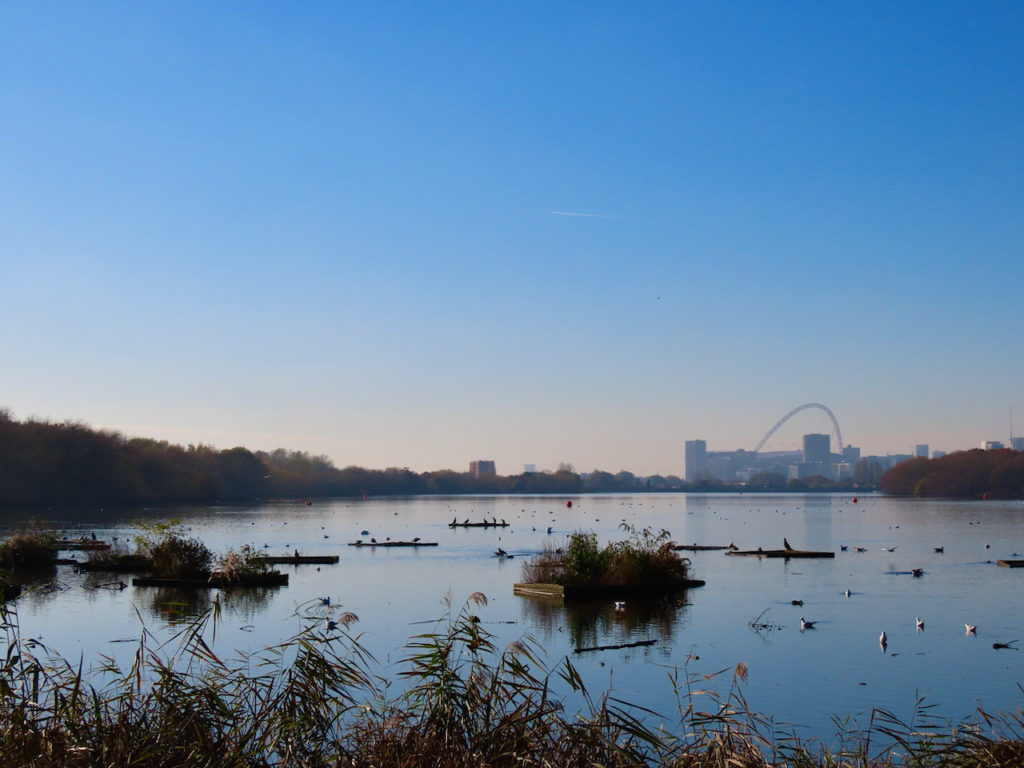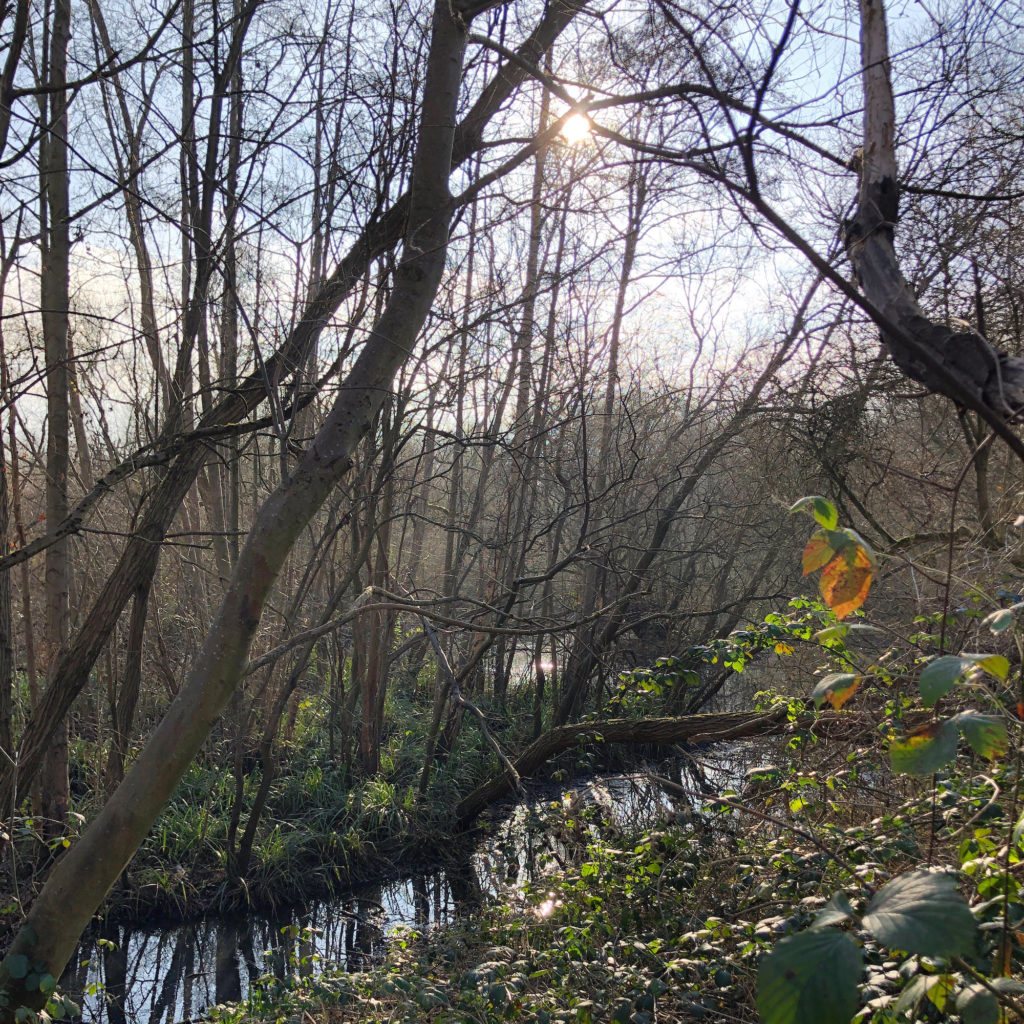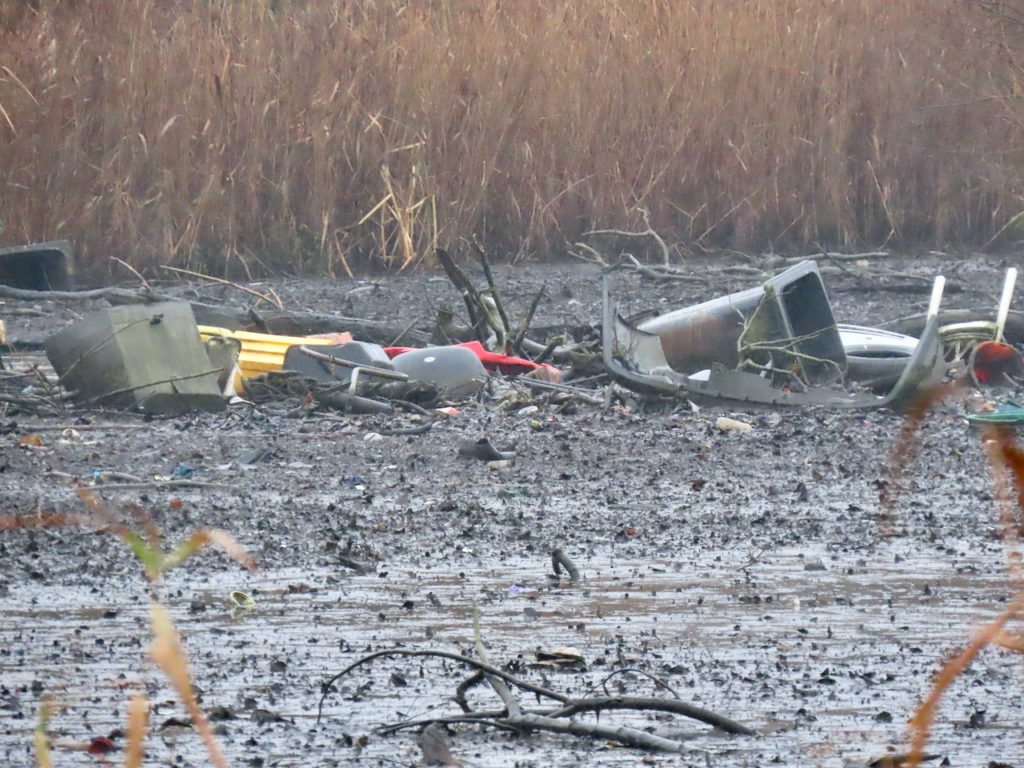During lockdown, musician and writer Ben Watt started a campaign to reverse decades of neglect at his local reservoir. A year on, he starts a new diary for Caught by the River.

I’m standing on a raised bank overlooking an area of historic urban wetlands that has been neglected for thirty years. Behind me is the car park for the playing fields, the post-war bowling club, two derelict tennis courts, and the childcare day nursery that backs onto the martial arts gym.
This is West Hendon — an unflash corner of the London Borough of Barnet — and I am looking into the backlands of the north marsh of Brent Reservoir.
In the late 1980s, a large sum of public money paid for an elegant re-landscaping of this patch — channels, islands, a lagoon — all for the breeding waterbirds notified under the impressive SSSI citation of 1950. Gadwall, Northern Shoveler, Great Crested Grebe all bred here in nationally notable numbers. Rare fenland plants grew along the fringes.
Today, with stewardship and funding all but absent since the mid-nineties, willow has ruthlessly colonised the backwaters. Silt has lodged in the margins from the inflowing Silk Stream. Nature has just done what nature does. Succession. The dominant habitat wins. I am largely looking at a monoculture of wet woodland now, and apart from intrepid moorhens, the breeding waterbirds are long gone.
It is also a liminal space just off the A5. The automated Edgware trash screen — opened in a blaze of optimistic local publicity in 1989 — is now overstretched and undermanaged by the Environment Agency, and floodplain-litter carpets the woodland floor. Condom wrappers, kids’ footballs, isotonic sports drink bottles. If you are bold enough to push past the brambles, brittle giant hogweed stems and tangle of crack willow you’ll find the generator, water butt, and empty fast-grow fertiliser bottles from an abandoned pop-up cannabis farm.

Yet the ghostly shape of the old wetlands remains. As the late morning sun streaks through the leafless winter canopy, I can picture what it was, and what it still really ought to be, because I’m also looking at a shockingly forgotten, legally-protected habitat.
So why am I here? Well, I’ve become, I suppose, an environmental campaigner. I may be best known as a musician, but since childhood I have also been a birder (full disclosure — my grandfather was the BBC’s first naturalist-broadcaster in the 1930s; my mum gave me my Observer Book of Birds when I was seven) and during lockdown I returned here as a local, after an absence, for solitary walks and its bird population.
And frankly, I was stunned by the neglect. The marshes were filled with wheelie bins, supermarket trollies and car bumpers. Thick toxic silt and plastic clogged the breeding and feeding grounds. Fly-tipping scarred the woodlands. I laughed at first. London. Urban, gritty. But then it didn’t seem funny.

I’m not the first to fight for Brent Reservoir, or to give it its popular name, the Welsh Harp. It’s been a key green space in North London for almost 200 years, and I soon linked up with veteran conservationist, Leo, who fought off a marina here in 1972, and Daniella and Leila from the irrepressible clean-up volunteers, Friends of the Welsh Harp. And we formed a loose alliance. And made a stink on Twitter. And got on the TV. And, suddenly exposed, the three owners (Canal and River Trust, Barnet Council, and Brent Council) who’d been fast asleep at the wheel, woke up.
2021 was then a whirlwind. I met CEOs, key figures at Natural England and the EA, sympathetic councillors, the local MP. I delivered researched reports to startled committees, and by the summer we’d moved the dial. The decades-old large debris was lifted off the marshes, £85k is being spent on maintenance this winter — the first serious investment in decades — and a new ‘Vision for Welsh Harp’ has been commissioned.
So, what about this bank I am standing on? In 2023 Barnet Council and waterside developer, Barratt’s intend to build a 186m footbridge through here, linking a new housing estate with a new sports hub. They claim the area is littered worthless woodland. We say the full story of its historic SSSI wetlands origins was never fully told at planning. It’s a scandal of vast biodiversity loss that few people really know about. Natural England, who will referee the ecological mitigation measures, are only just waking up to the scale of what they have approved.
This year, our loose alliance became a fully-fleged environmental pressure group. We’re now called Cool Oak, after the old country lane that crosses the reservoir. We’ve planted a flag.
Thirty-three winter snipe, spring reed warblers, a lost colony of common spotted orchid have been highlights since I returned. It’s a remarkable place, an ancient shallow flooded valley next to the A406 North Circular. And I guess I have just become involved.
*
Ben Watt is a musician and writer, best known as one half of Everything But The Girl. His memoir ‘Romany and Tom’, about his parents, was nominated for the Samuel Johnson (Baillie Gifford) Prize. He runs Buzzin’ Fly Records, and in 2021 founded environmental pressure group Cool Oak.